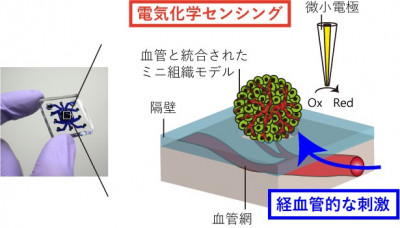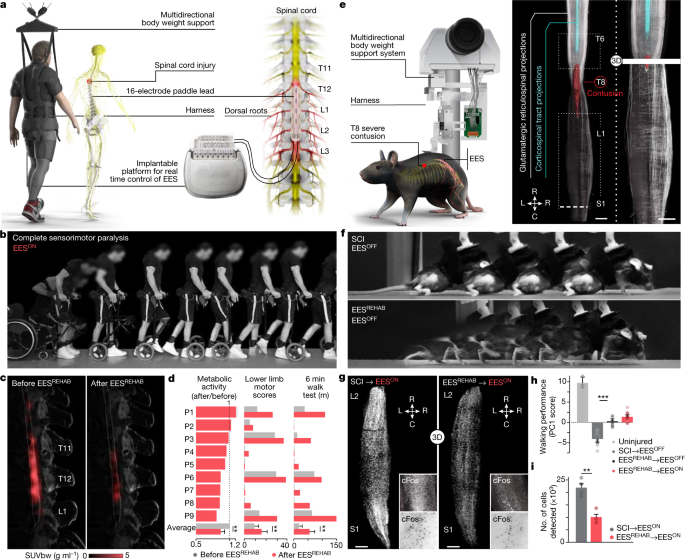肺がんの初期段階のメカニズムを研究している科学者たちが、新たな治療法の可能性を見出し、この病気の早期発見を助ける可能性がある。 Scientists investigating the mechanics of the early stages of lung cancer have identified a new potential treatment, which could also aid early detection of the disease.
2022-11-09 エディンバラ大学
TLR2を活性化する薬剤化合物をマウスで実験したところ、病気の初期段階で腫瘍の成長を抑えることが判明した。
後期肺癌の5年生存率はわずか6%であり、早期診断の場合は50%である。この画期的な発見により、病気を早期に発見し、患者の予後を改善することができると専門家は述べている。
TLR2タンパク質は、細胞が成長を停止し、様々な化学物質や他のタンパク質を分泌するプロセスである老化と関連しており、これらは集合的に警告信号やがんに対する防御として機能する。
老化細胞は初期の肺がんには存在するが、末期のがんにはもはや存在しないことから、老化ががんの進行を防ぐことができると考えられている。
ヒト腫瘍サンプルのデータを用いて、肺がんの初期段階でこのタンパク質のレベルが高い患者は、低い患者に比べ生存期間が長いことを確認した。
次に研究チームは、TLR2を活性化することが知られている薬剤を、肺がんモデルマウスに使用した。その結果、この薬剤は肺腫瘍の成長を抑制することがわかった。
<関連情報>
- https://www.ed.ac.uk/news/2022/protein-insights-may-boost-lung-cancer-treatment
- https://www.cell.com/cell-reports/fulltext/S2211-1247(22)01461-9
非小細胞肺がんにおけるTLR2活性化薬剤による腫瘍抑制反応の制御 Toll-like receptor 2 orchestrates a tumor suppressor response in non-small cell lung cancer
Fraser R. Millar,Adam Pennycuick,Morwenna Muir,Andrea Quintanilla,Priya Hari,Elisabeth Freyer,Philippe Gautier,Alison Meynert,Graeme Grimes,Carla Salomo Coll,Sofia Zdral,Stella Victorelli,Vitor H. Teixeira,John Connelly,João F. Passos,Marian A. Ros,William A.H. Wallace,Margaret C. Frame,Andrew H. Sims,Luke Boulter,Sam M. Janes,Simon Wilkinson,Juan Carlos Acosta
Cell Reports Published November 08, 2022
DOI:https://doi.org/10.1016/j.celrep.2022.111596

Highlights
- TLR2 is associated with improved survival and premalignant regression in NSCLC
- TLR2 mediates oncogene-induced senescence and the SASP in early lung tumors
- The Tlr2-mediated SASP recruits myeloid cells and promotes senescence surveillance
- Targeting Tlr2 therapeutically reduces lung tumor growth in mouse models
Summary
Targeting early-stage lung cancer is vital to improve survival. However, the mechanisms and components of the early tumor suppressor response in lung cancer are not well understood. In this report, we study the role of Toll-like receptor 2 (TLR2), a regulator of oncogene-induced senescence, which is a key tumor suppressor response in premalignancy. Using human lung cancer samples and genetically engineered mouse models, we show that TLR2 is active early in lung tumorigenesis, where it correlates with improved survival and clinical regression. Mechanistically, TLR2 impairs early lung cancer progression via activation of cell intrinsic cell cycle arrest pathways and the proinflammatory senescence-associated secretory phenotype (SASP). The SASP regulates non-cell autonomous anti-tumor responses, such as immune surveillance of premalignant cells, and we observe impaired myeloid cell recruitment to lung tumors after Tlr2 loss. Last, we show that administration of a TLR2 agonist reduces lung tumor growth, highlighting TLR2 as a possible therapeutic target.

